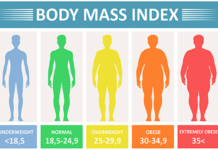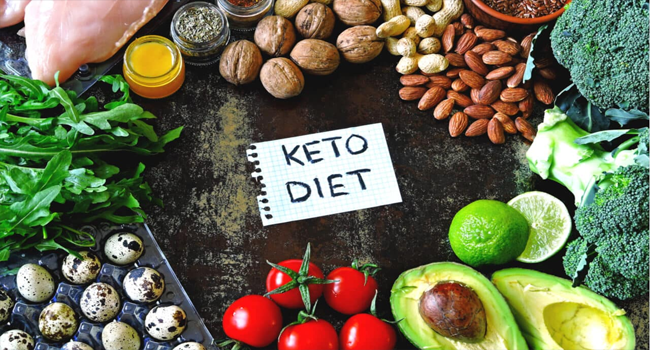Introduction:
In recent years, the ketogenic weight-reduction plan, regularly abbreviated because of the keto diet, has received significant recognition as a weight-reduction strategy. Advocates reward its effectiveness in shedding pounds unexpectedly, even as critics raise worries about its lengthy-term fitness implications. This article aims to offer an in-depth exploration of the keto food regimen for weight loss, outlining its pros and cons to assist people in making informed selections about its suitability for their dreams and lifestyle lifestyle lifestyle.
What is the Keto Diet?
The ketogenic food regimen is a high-fat, low-carbohydrate consuming plan designed to result in a country of ketosis within the frame. Ketosis occurs when the frame switches its primary fuel supply from glucose to ketones, which are made out of the breakdown of fat within the liver. To obtain ketosis, fans of the keto eating regimen substantially reduce their carbohydrate consumption even by increasing their consumption of fat and moderating protein intake.
Pros of the Keto Diet for Weight Loss:
Rapid Weight Loss: One of the number one sights of the keto weight-reduction plan is its ability to promote fast weight loss. By restricting carbohydrate consumption, the frame depletes its glycogen stores. It starts burning fat for gas, central, mainly for sizable initial weight reduction, often in the form of water weight.
Appetite Suppression: The excessive fat content of the keto food plan, coupled with good enough protein consumption, can assist in the growth of feelings of fullness and satiety. This can lead to decreased urge for food and less cravings, making it less complicated for people to stick to their calorie goals and obtain weight reduction.
Improved Blood Sugar Control: For individuals with kind two diabetes or insulin resistance, the keto weight loss program may help improve blood sugar manipulation by lowering carbohydrate intake and stabilizing insulin ranges. Some studies have shown promising outcomes in glycemic control among those following a ketogenic food plan.
Enhanced Mental Clarity and Focus: Many proponents of the keto food plan report experiencing improved cognitive characteristics, along with elevated mental readability and awareness. This will be attributed to the mind’s utilization of ketones for strength, which may offer a more solid and sustained fuel supply than glucose.
Potential Health Benefits: Beyond weight reduction, the keto diet has been studied for its capability healing effects in numerous health situations, including epilepsy, Alzheimer’s disease, and certain sorts of cancer. While more research is wanted in those areas, initial proof indicates promising effects.
Cons of the Keto Diet for Weight Loss:
Nutrient Deficiencies: The restrictive nature of the keto weight-reduction plan, especially in terms of carbohydrate sources, can result in deficiencies in essential vitamins along with fiber, nutrients, and minerals. Fruits, veggies, and complete grains, which might be restricted at the keto eating regimen, are essential assets of these nutrients.
Difficulty Sustaining Long-Term Adherence: Adhering to the keto weight loss plan can be difficult for many individuals due to its strict carbohydrate restrictions and restrained food selections. This can result in feelings of deprivation, social isolation, and issues retaining the food plan over the long term.
Risk of Keto Flu: When transitioning to a ketogenic food plan, a few people revel in signs and symptoms referred to as the “keto flu,” inclusive of fatigue, complications, nausea, and dizziness. These signs commonly get up in the course of the preliminary tiers of ketosis as the body adjusts to burning fats for gas.
Potential Negative Effects on Lipid Profiles: While the keto weight-reduction plan may also result in weight reduction, a few studies have raised worries about its effect on lipid profiles, which include elevated tiers of LDL ldl cholesterol (frequently referred to as “awful” LDL cholesterol) and reduced levels of HDL ldl cholesterol (often called “good” LDL cholesterol). However, the long-term implications of those adjustments are nevertheless debated inside the medical network.
Social and Lifestyle Limitations: Following a keto diet may require significant adjustments to at least one’s lifestyle, as many social gatherings and eating options revolve around carbohydrate-rich foods. This could make it hard to adhere to the weight-reduction plan in positive social settings and may affect the standard high-quality of existence.
Potential Adverse Effects on Gut Health: The keto weight loss plan’s restriction of fiber-rich ingredients like fruits, vegetables, and whole grains may also affect gut health. Fiber is essential for preserving a wholesome intestine microbiota, and a lack of it may cause dysbiosis, an imbalance in intestine microorganisms associated with various fitness issues, including digestive problems and infection.
Increased Risk of Eating Disorders: Strict nutritional regimens like the keto diet can also contribute to the development or exacerbation of disordered consuming behaviors, together with orthorexia nervosa or binge eating disease. The focus on strict macronutrient ratios and food restrictions can lead to a dangerous preoccupation with food and body photography.
Potential for Muscle Loss: While the keto food plan effectively burns fat for gasoline, it can also add to the loss of lean muscle groups, mainly if insufficient protein intake exists. This can negatively impact metabolic rate and general body composition, challenging long-term weight upkeep.
Lack of Long-Term Research: Despite its growing reputation, there may be a relative scarcity of lengthy-term research inspecting the safety and efficacy of the keto weight loss program for weight reduction. Most research focuses on brief-term effects, leaving questions on the weight-reduction plan’s sustainability and ability to address health risks needing to be answered.
Individual Variability: It’s essential to recognize that no longer all and sundry will respond similarly to the keto weight-reduction plan. Genetics, metabolic fees, pastime degrees, and average fitness fame can influence how people tolerate and enjoy the food plan. What works nicely for one individual will yield different effects for others.
Potential for Ketosis-related Side Effects: While ketosis is the favored metabolic nation at the keto weight-reduction plan, it can additionally lead to facet outcomes, which include horrific breath (frequently described as “keto breath”), constipation, and electrolyte imbalances. These aspect outcomes may be bothersome for a few people and might require adjustments to the eating regimen or supplementation to relieve.
Sustainability Challenges: Long-term adherence to the keto eating regimen may be challenging for many people due to its restrictive nature and capacity social barriers. Over time, the monotony of the eating regimen and the absence of positive meal groups may cause cravings, binges, or emotions of deprivation, making it challenging to preserve weight loss outcomes.
Conclusion:
The keto weight-reduction plan has emerged as a popular approach, providing fast outcomes and capability fitness benefits for positive individuals. However, it also comes with incredible drawbacks and issues, which include nutrient deficiencies, difficulty maintaining long-term adherence, and capability terrible results on lipid profiles. As with any nutritional method, weighing the pros and cons carefully and discussing them with a healthcare professional before significantly changing one’s ingesting habits is essential. Ultimately, the suitability of the keto weight loss plan for weight loss relies on personal possibilities, health reputation, and lifestyle factors.






















